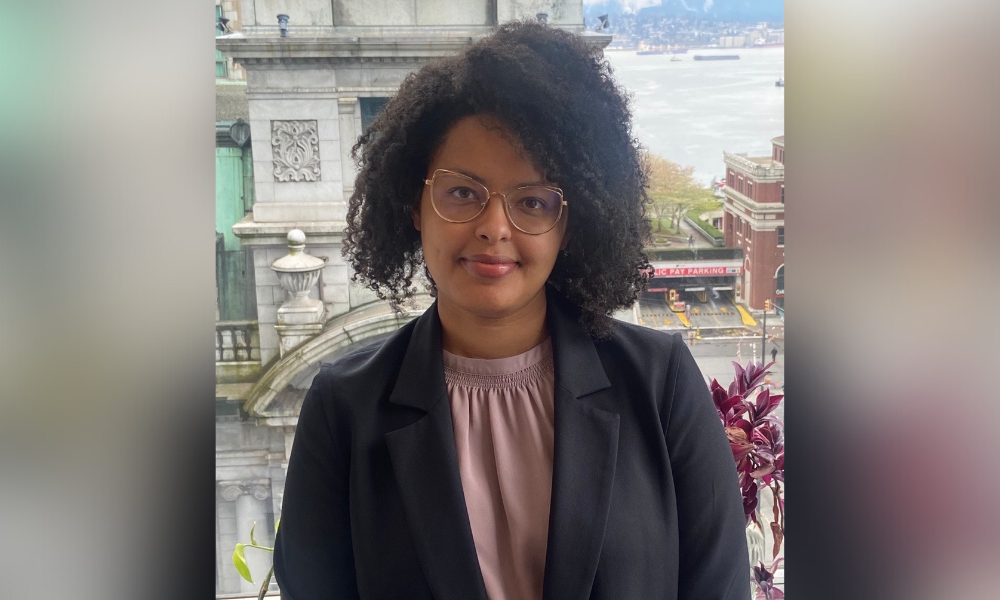
Indigenous mother's discrimination award set aside, Tribunal will hear claim again

A British Columbia Supreme Court judicial review decision recently confirmed that the BC Human Rights Tribunal has jurisdiction over discrimination claims brought against the provincial Ministry of Children and Family Development (MCFD).
Vancouver Aboriginal Child and Family Services Society v R.R, 2024 BCSC 97 was an “important case,” said Justice Geoffrey Gomery, because it raised questions about “the respective roles of the Provincial Court and the Human Rights Tribunal in addressing the removal of children from Indigenous parents.”
The woman who brought the discrimination claim, RR, is a mother of four. Social workers, empowered under the Child, Family and Community Service Act (CFCSA), removed RR’s children from her care in 2016 after reports of abuse and neglect. After a negotiated resolution with the removing agency, the Vancouver Aboriginal Child and Family Services Society (VACFSS), RR got her kids back two-and-a-half years later.
RR filed a discrimination complaint with the BC Human Rights Tribunal, alleging mistreatment by the VACFSS’s social workers. In her form, RR wrote that she was filing the complaint to regain custody of her children “to avoid separation trauma, loss of identity and loss of culture as I did.”
In November 2022, the Tribunal released its decision. The Tribunal member said VACFSS’s decision to take RR’s children and restrict her access “were informed by stereotypes about her as an Indigenous mother with mental health issues, including trauma, and her conflict with the child welfare system.” Because of her Indigeneity and trauma, RR had a heightened need for empowerment and for VACFSS to include her in decisions concerning her children and consistently update her on their wellbeing. “Instead, [VACFSS] responded to her with escalating assertions of power and control, reducing and suspending her access to the children, limiting her communication with their caregivers, and ultimately prolonging their time in care.”
The member ordered VACFSS to pay RR $150,000 for injury to her dignity, feelings, and self-respect.
VACFSS applied for judicial review. Justice Gomery found legal errors and procedural unfairness in the Tribunal’s ruling. He set aside the decision and remitted the matter to the Tribunal for reconsideration.
West Coast LEAF intervened in the case and argued that “ongoing colonialism and social context must be considered in determining the scope of the Tribunal’s role in addressing discrimination” in the family welfare system. They welcomed the finding that the Tribunal has jurisdiction over discrimination complaints against child welfare agencies but noted that the decision downplays the “negative impact that discrimination against parents can have on their children.”
“We wanted to get involved because of the impact that this decision could have on families engaged in the family policing system,” says Bety Tesfay, a staff lawyer with West Coast LEAF. “We intervened because we believe the court should consider the social and historical context when assessing the scope of the tribunal’s jurisdiction.”
“We are concerned that the legal analysis for discrimination focuses on intention or good faith because of the fact that the presence of good intentions does not mean that there is no adverse impact.”
On the procedural unfairness, Gomery found that VACFSS was not given a fair opportunity to address pivotal issues in the Tribunal’s decision.
VACFSS argued that the Tribunal was adjudicating a matter – its decision not to return the children to RR –within the exclusive jurisdiction of the Provincial Court under the CFCSA. Gomery said the Tribunal had jurisdiction to consider whether VACFSS’ decisions were discriminatory under s. 8 of the Human Rights Code. Under the CFCSA, VACFSS’ decision about whether a child must be removed from a parent’s care or returned to a parent is the Provincial Court’s exclusive turf. Still, the Tribunal can consider CFCSA requirements when adjudicating a discrimination claim. The judge concluded it would be up to the Tribunal to determine whether its decision not to decline jurisdiction was patently unreasonable, and fairness requires that VACFSS have the opportunity to argue that the substance of RR’s discrimination complaint, or part of it, has been dealt with in the Provincial Court.